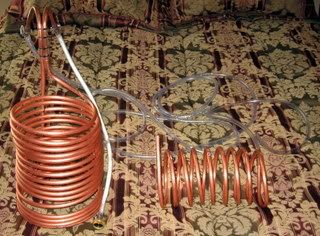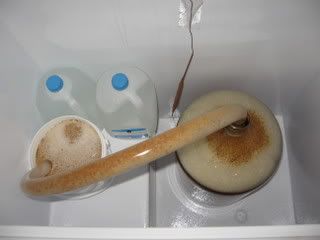1) sanitation - get Starsan or iodiphor
2) basic equipment - hydrometer, sampling tube, bench capper if you're bottling etc
3) decent 20L plus stockpot, grain/hop bags, jars to make yeast starters
4) Temp control for your fermenters
5) After all this, spend the money on quality ingrediants
6) After you can brew a consistant beer because you have the basic gear and know what your doing, then collect bits and pieces to make a mash/lauter tun, HLT, burner, kettle etc.
AG is cool, I'm hoping to get there in the next few weeks after ages of collecting gear,but if you don't have the basic knowledge/skill/equipment, then all that extra gear is not money well spent. If you can't make a consistant beer with the simple basic gear and ingredients don't jump aheaad to the next stage, how you handle an extract is going to be the same as you handle an AG wort. If you can't brew an extract really well, you can't brew an AG.



